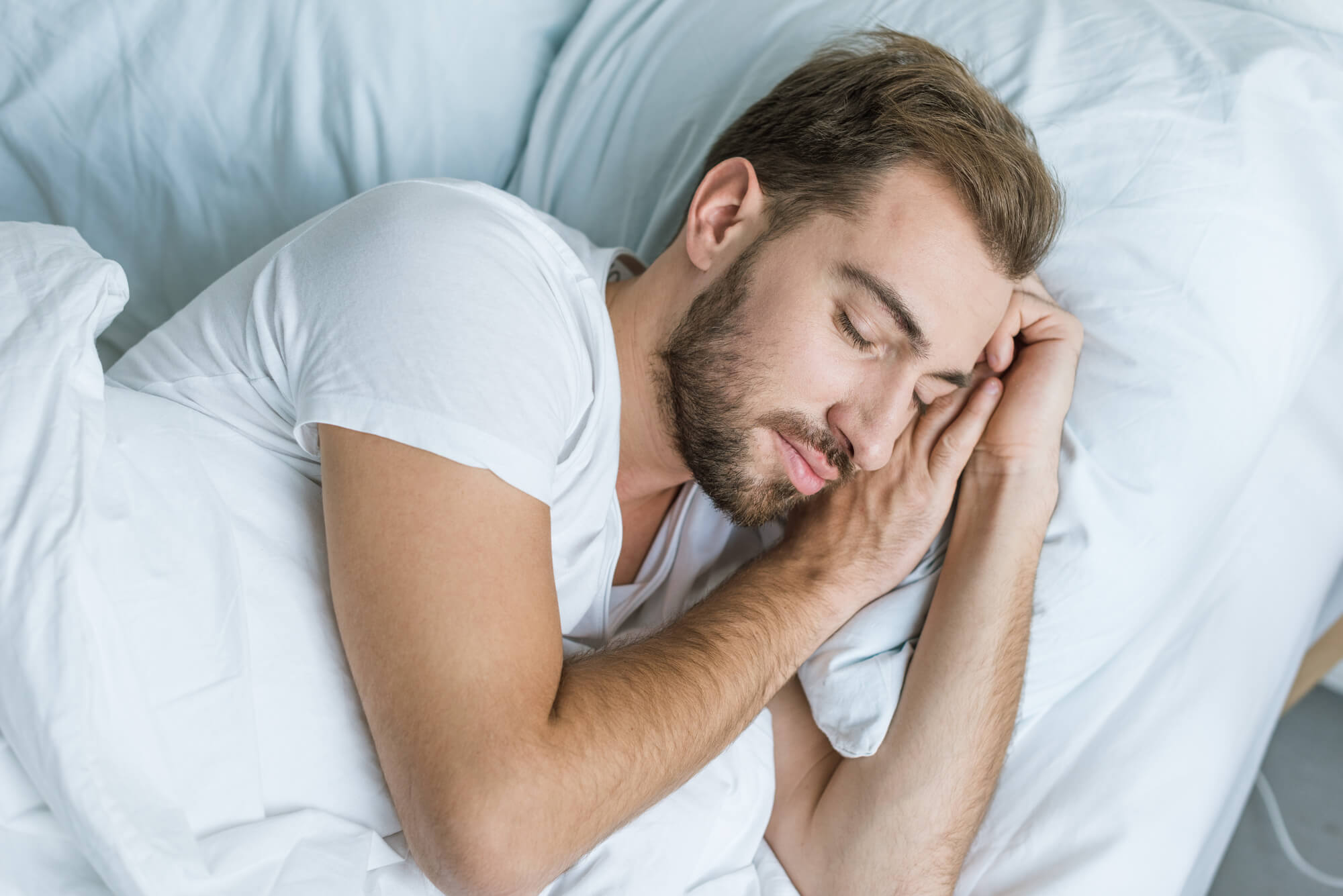How Your Sleep Quality Affects Your Testosterone Production
We all have an innate sense telling us that sleep is important. Most of us wish we could get more sleep on a regular basis, because sleep improves our mood when we get sufficient amounts. Conversely, we recognize that our sense of wellbeing takes a beating when we are sleep-deprived.
The benefits of healthy sleep can include healthier testosterone production and better overall hormone balance, which help you feel much more on top of your game.

Sleep and Testosterone Production
Quality sleep helps us feel rested each day. During sleep, physiological strain on our bodies is reduced, our temperature drops, and blood pressure decreases.
However, your brains and bodies don’t stop working entirely while you sleep. In fact, many of your internal organs and physiological processes do their best work throughout the night.
As you sleep, your body produces testosterone and other hormones to replenish what it utilized to propel itself through the previous day’s activities and to prepare us for the following day.
As a result, muscles are repaired, bone tissue replaced, blood cells are produced, and energy reserves are restored.
Dr. Michael Twery, a sleep expert at News In Health, says:
“Sleep affects almost every tissue in our bodies. It affects growth and stress hormones, our immune system, appetite, breathing, blood pressure and cardiovascular health.”
He’s right. When testosterone production is disrupted for prolonged periods, failure of the body’s sustaining systems can lead to chronic health conditions, such as:
- Anemia
- Osteoporosis
- Muscle weakness
- Weight gain
- Type II Diabetes
- Anxiety
- Diminished sex drive (libido)
The National Sleep Foundation’s most recent guidelines include a recommendation that adults in their late 20s and early 60s average 7 to 9 hours of undisturbed sleep per night.
If you’re falling well below this range, it might be time to take a look at possible lifestyle changes to facilitate more efficient hormone production and better overall health.
Sleep and Testosterone: Is There Research Behind These Conclusions?
There certainly is. A recent study examined the effect of 1 week of sleep restriction on testosterone levels in young healthy men.
Total sleep time for the participants was decreased from 8 hours 55 minutes to 4 hours 48 minutes during sleep restriction. The subjects lost a total of 2 hours 45 minutes of deep sleep and 1 hour 3 minutes of REM.
Testosterone levels were significantly lower after sleep restriction than in a rested condition, and they were lowest later in the day/evening—an indication that testosterone production was woefully insufficient when subjects failed to get sufficient sleep.
To put that more clearly, daytime testosterone levels were decreased by 10% to 15% in this small sample of young healthy men who experienced 1 week of sleep restriction to 5 hours per night.
Sleep and Disruption of Testosterone Production: Next Steps
If your hormone levels typically hover just above the line that separates normal and low, irregular sleep patterns could pull you into symptomatic territory. Lifestyle interventions such as more exercise or better sleep may provide avenues for improving your condition.
On the other hand, if your testosterone levels chronically fall below the optimum range and you’re experiencing symptoms on a regular basis, or your symptoms are often severe enough to hinder your ability to enjoy life, it may be time to consult a medical professional.
There’s no need to continue feeling less than your best if the drag on your system is caused by a treatable condition like Low T.
